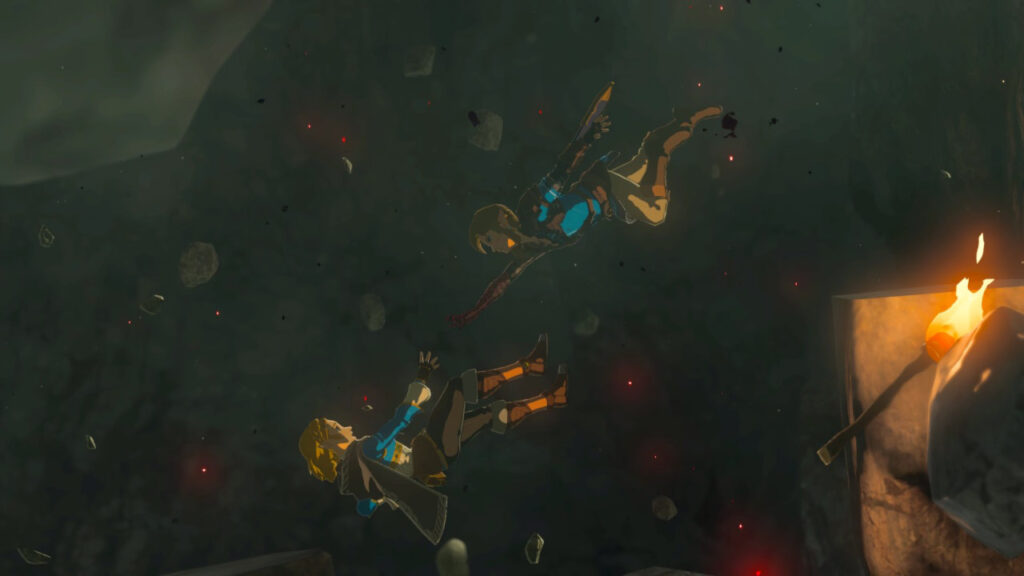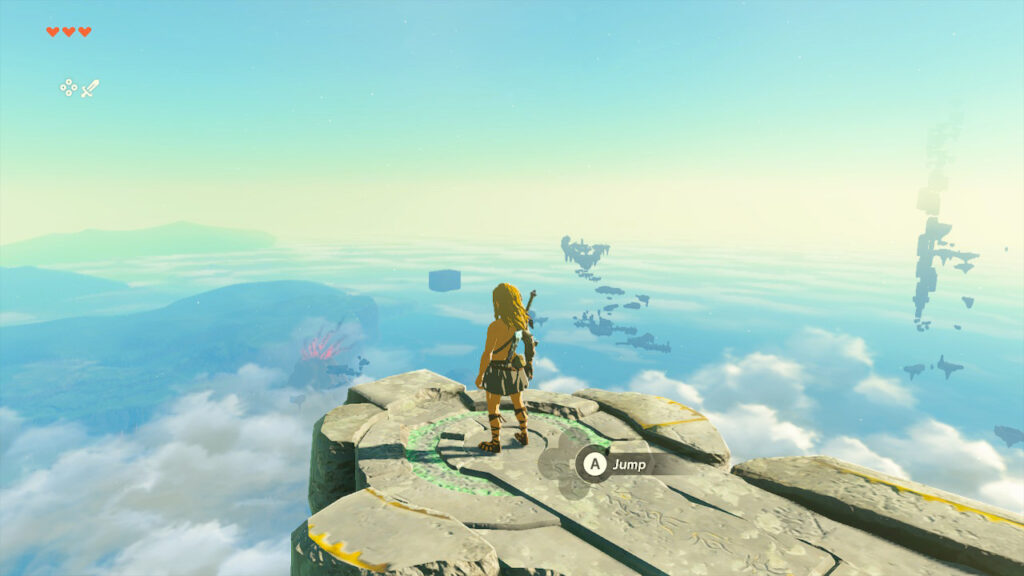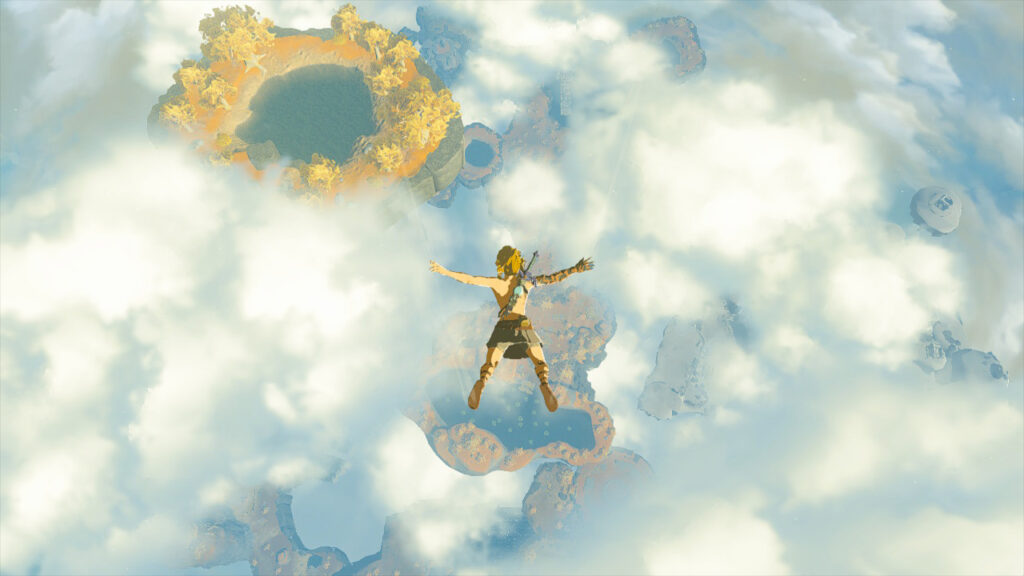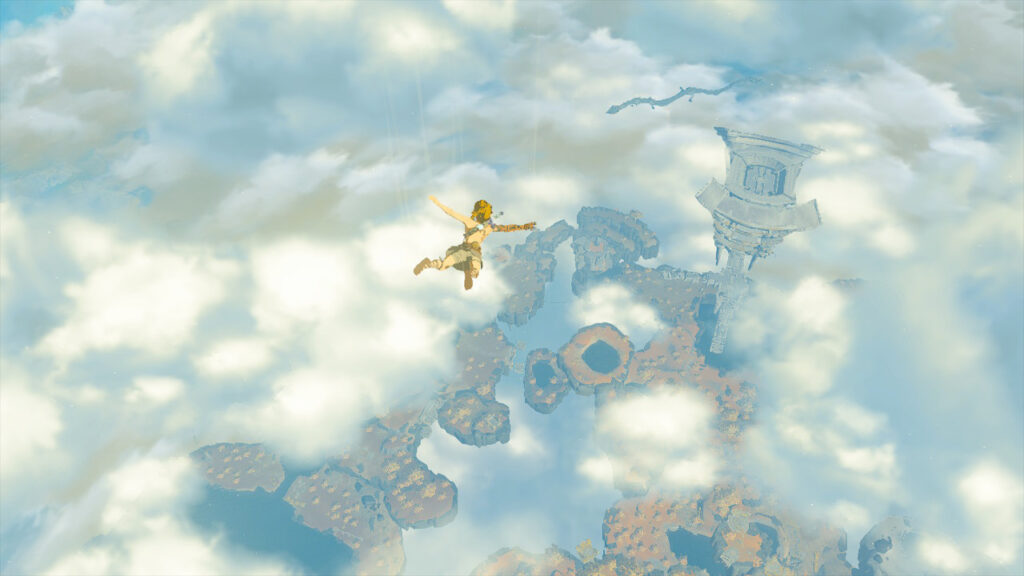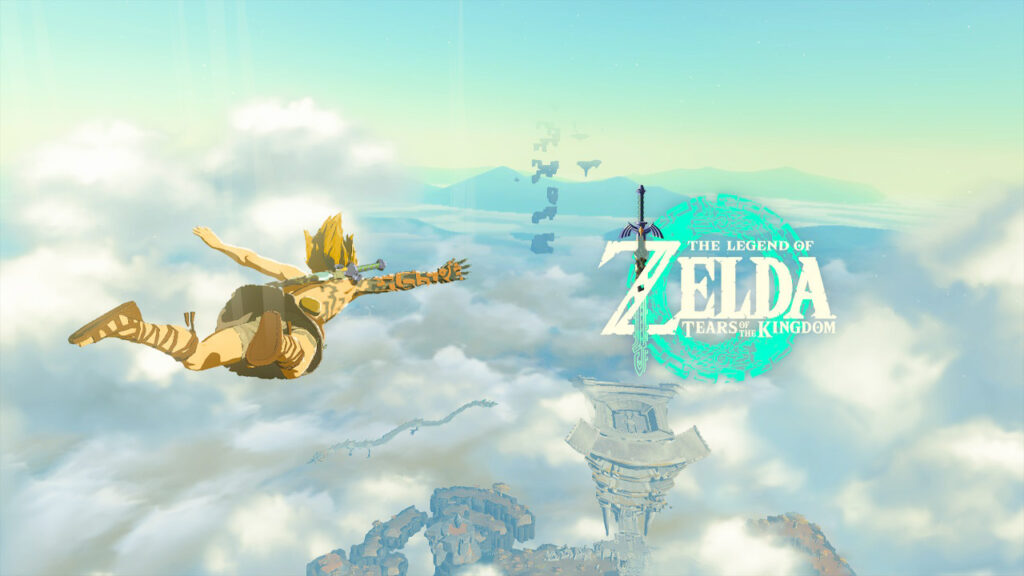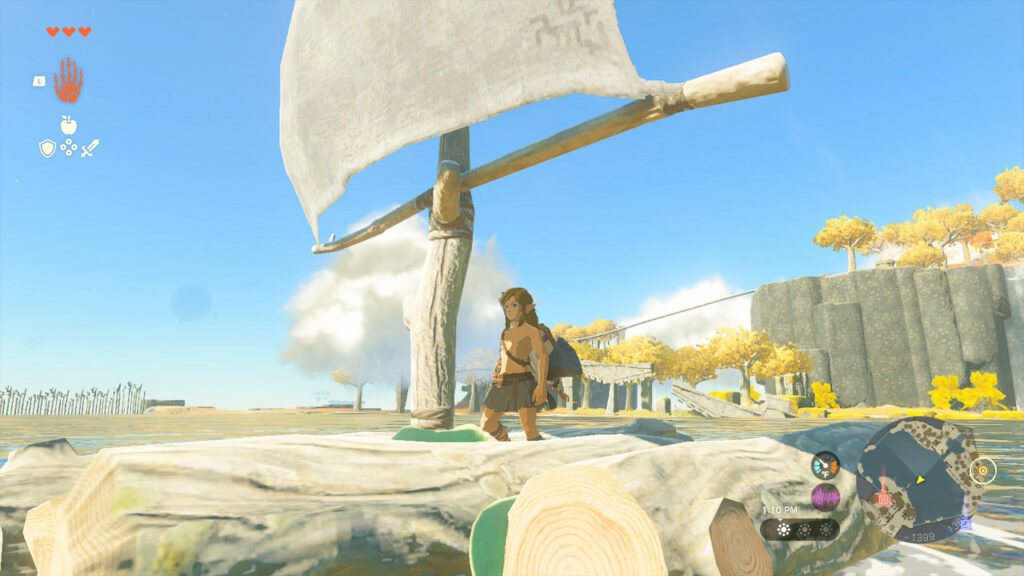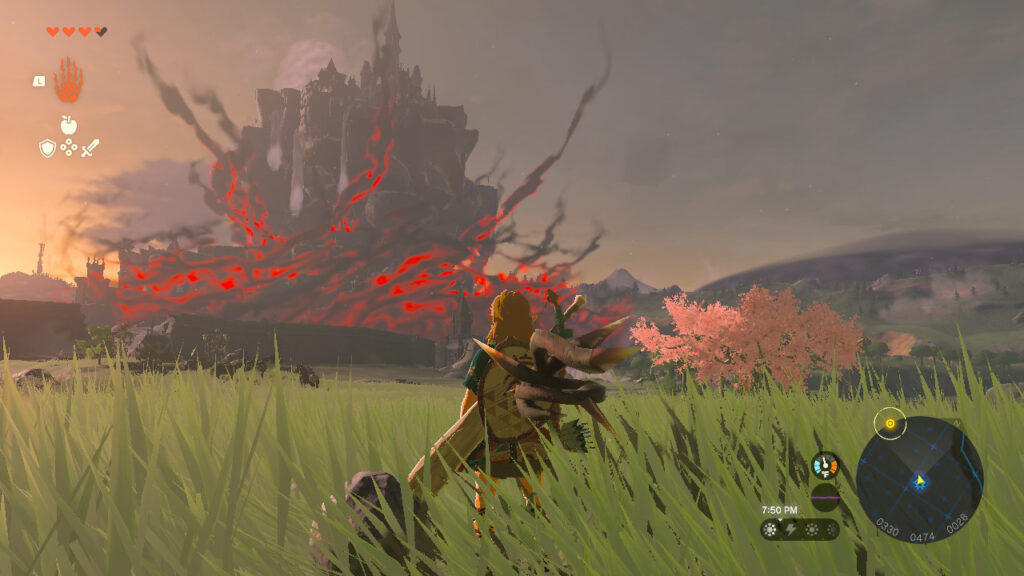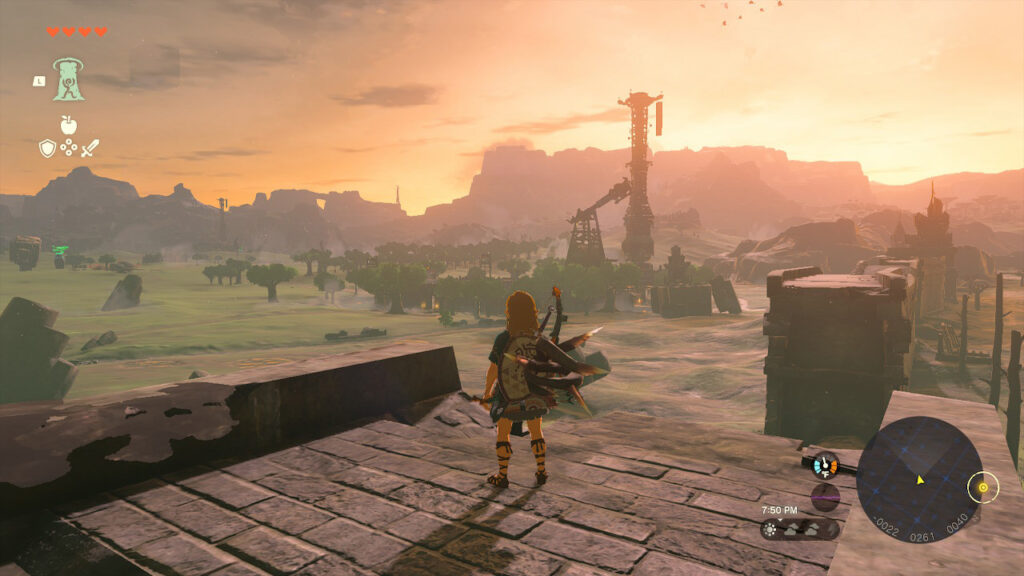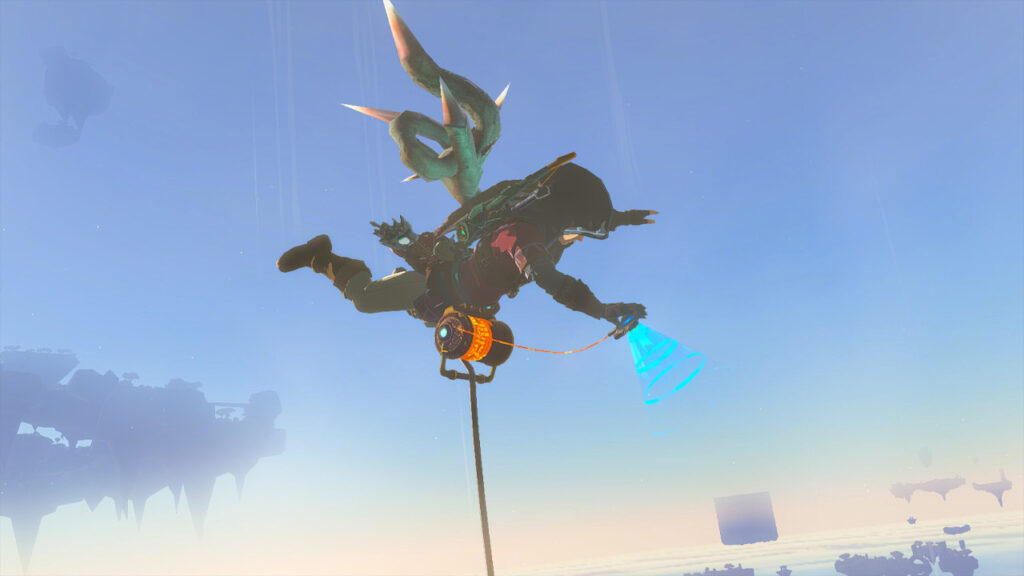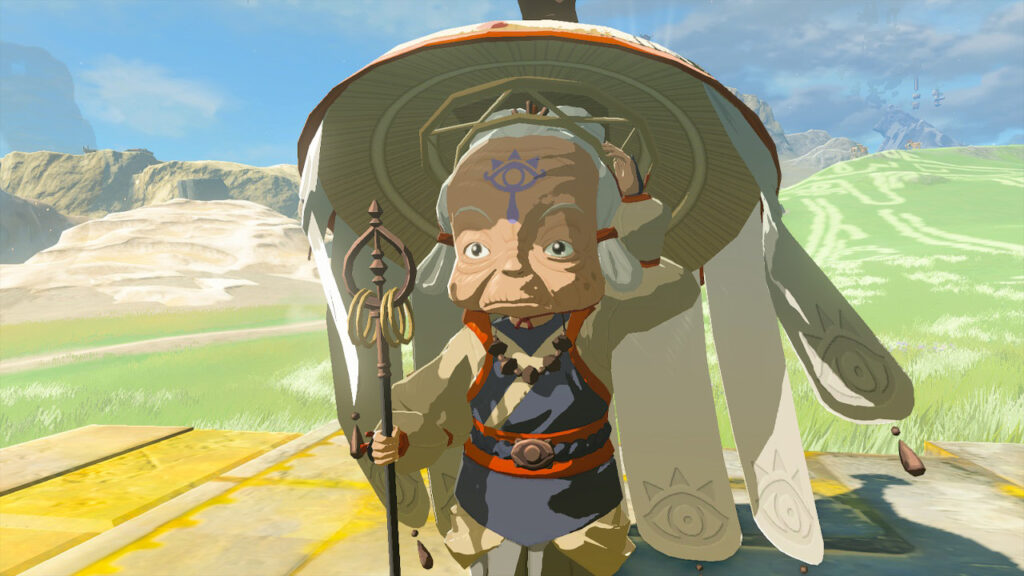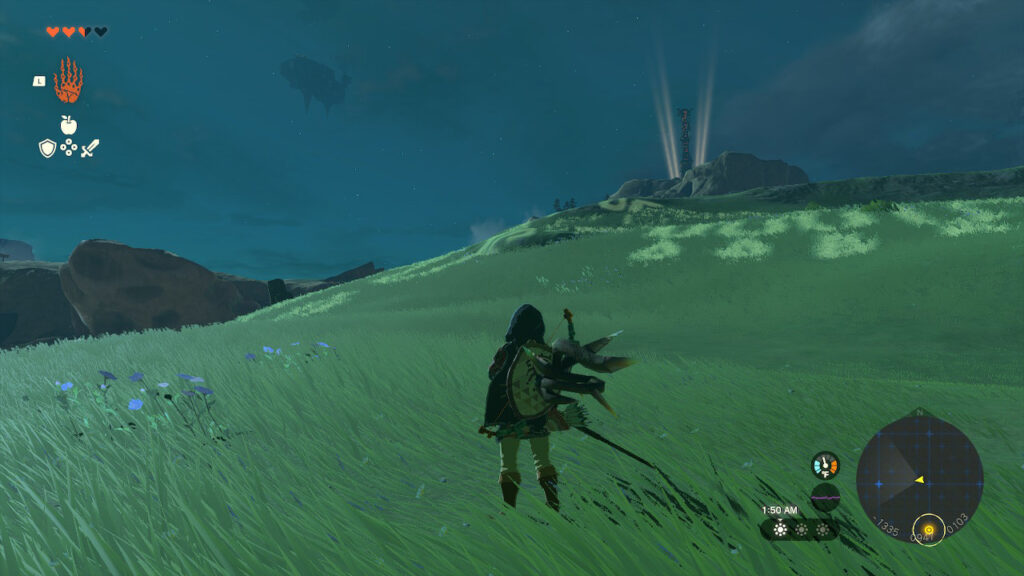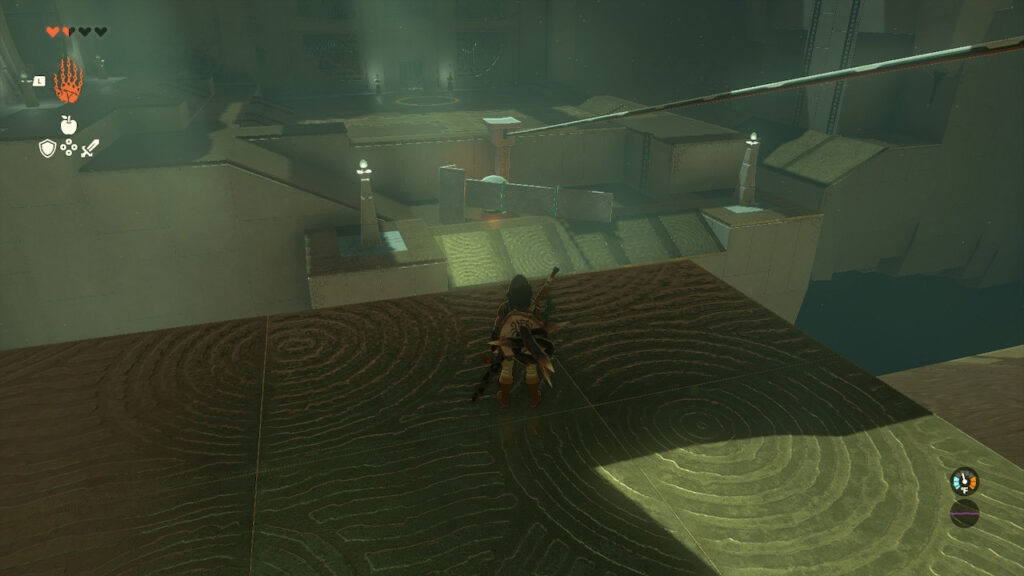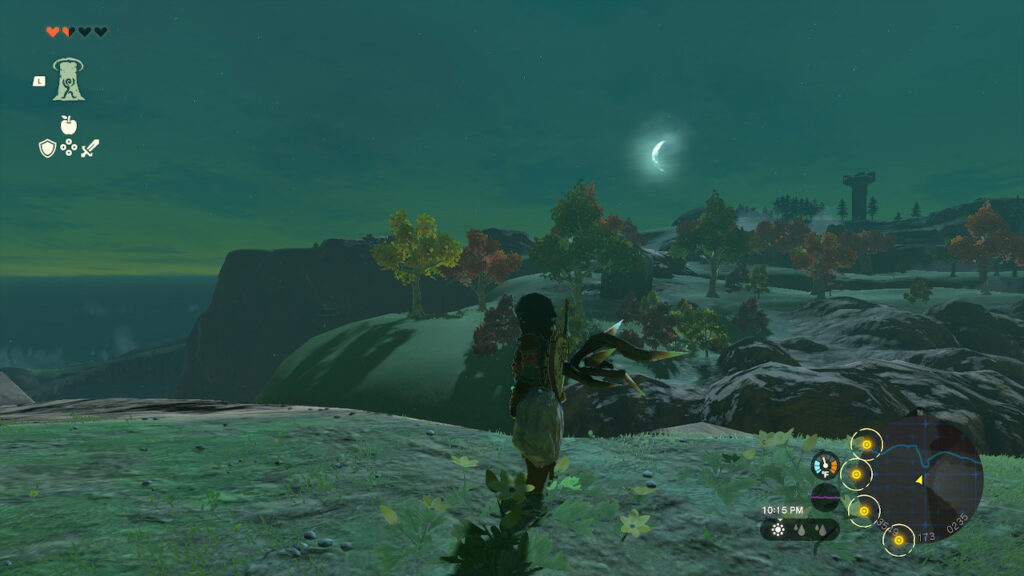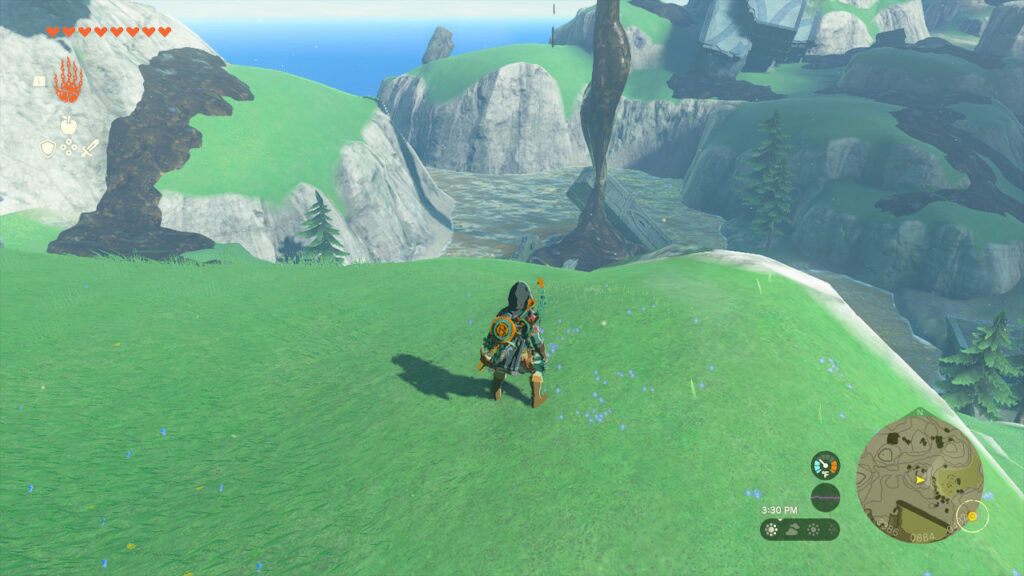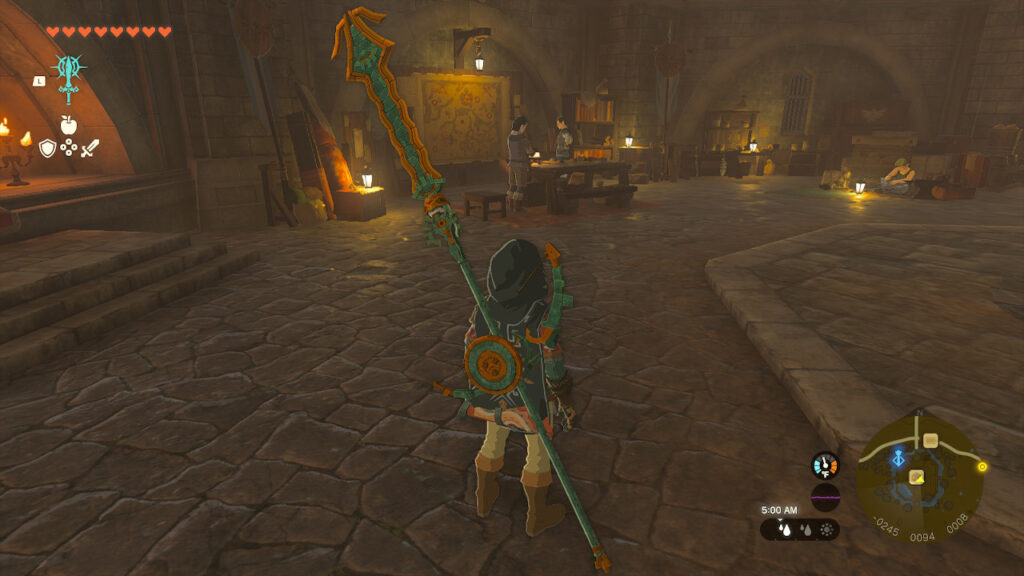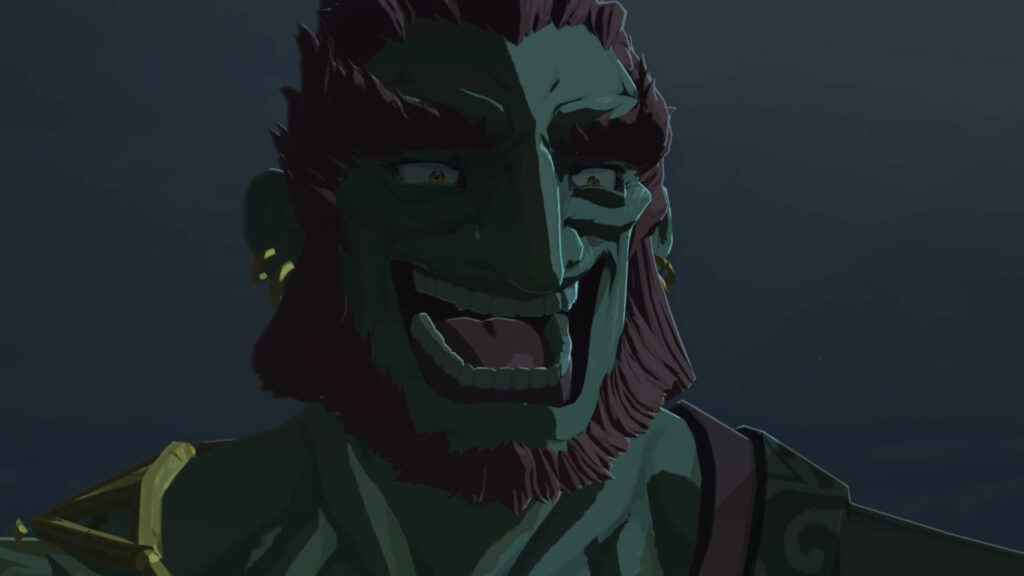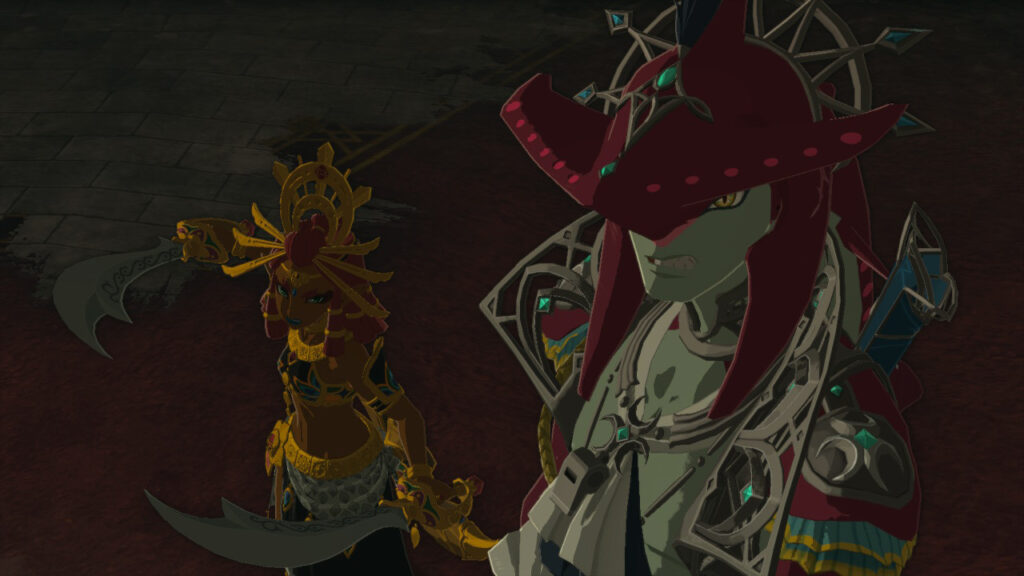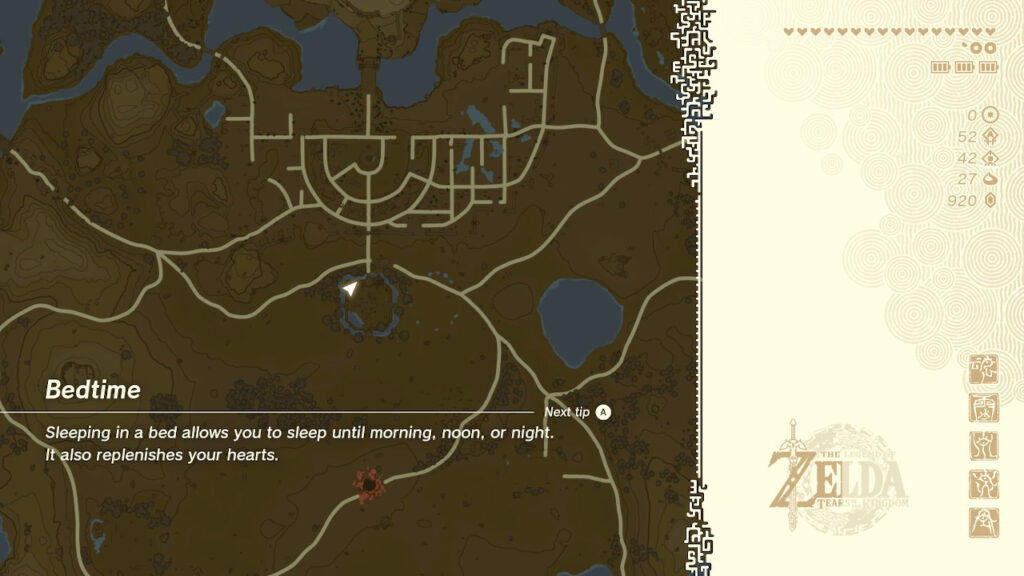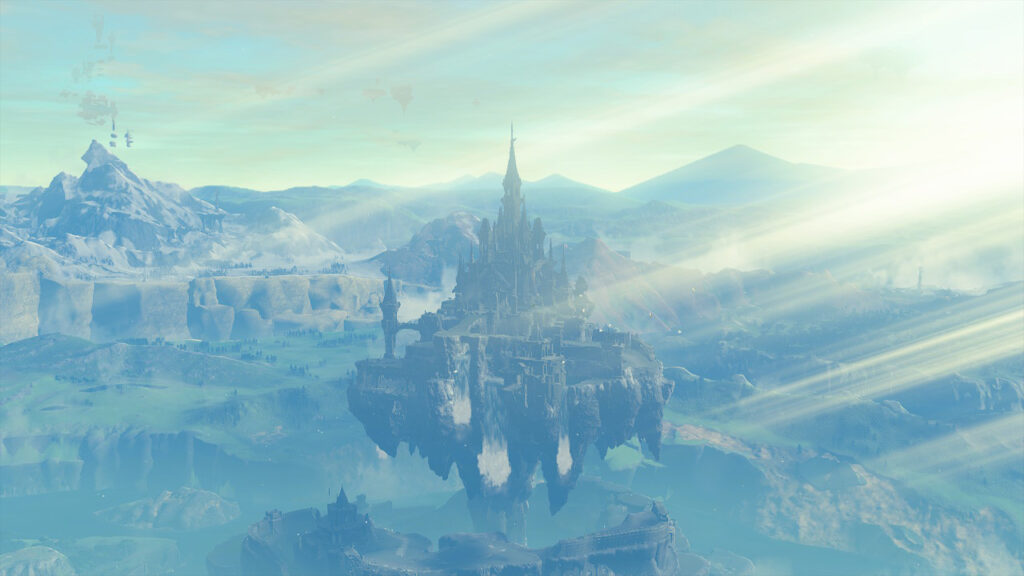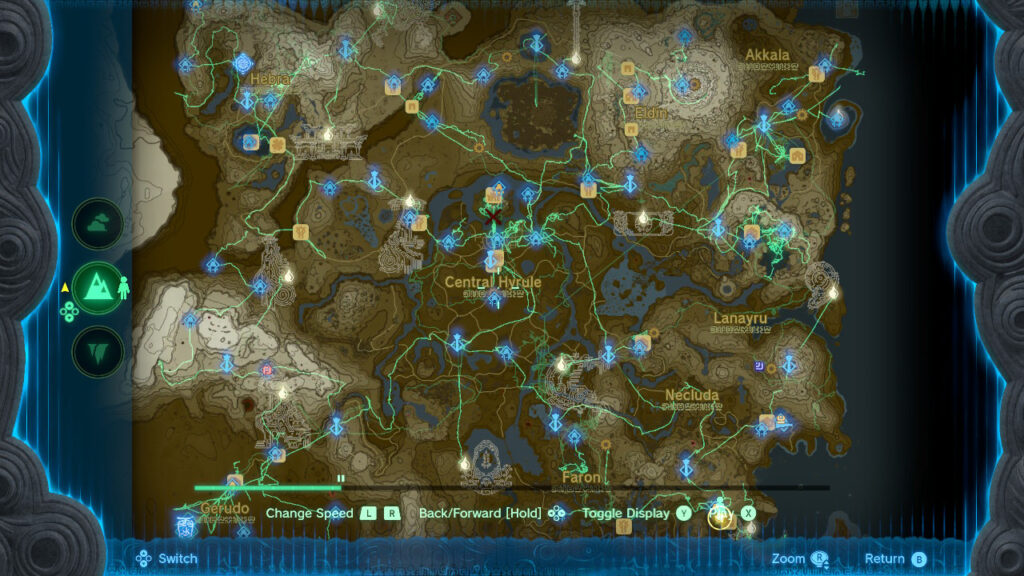Quick Verdict
The Legend of Zelda: Tears of the Kingdom reminds me of what a video game should be. It’s about imagining a world that doesn’t exist, with nearly endless possibilities that are limited only by your creativity. You can ignore the fact that some things don’t make sense, because it’s a video game. Tears of the Kingdom is fun and engaging, but more importantly, it makes you feel like a kid again. Even after over 95 hours of gameplay to watch the credits roll, it still feels as if I’ve barely scratched the surface of what the game has to offer. It’s truly an adventure unlike any I’ve experienced.
This review is spoiler-free, only covering what was revealed in initial trailers and broad gameplay details. A gallery of screenshots with some light spoilers is available at the end of the review.
If I had the ability to travel back in time to 1988 and tell my younger self that in 2023, Tears of the Kingdom lets me assemble a flying vehicle and use it to navigate the map, my younger self would probably find it more believable that flying cars exist in the real world. I chose 1988 as my reference year because it was when I received an NES. The game that came with the bundle was Zelda II: The Adventure of Link. Yes, my first Nintendo game wasn’t a Super Mario Bros. game, and my introduction to Link and Zelda came from a game that wasn’t even the original. But none of those details really matter; the point I’m trying to make is that no matter what game was inside the NES, it amazed me in my childhood because of the adventure I would experience each time I pushed that rectangular power button.
If I had the ability to travel back in time to 1992 and tell my younger self that in 2023, Tears of the Kingdom lets me combine hundreds of random items to my weapons and shields in combat, my younger self would probably tell future me to go away, because I believed nothing would ever be better than The Legend of Zelda: A Link to the Past. The technological jump from the NES to the SNES seemed unimaginable to a kid, and the evolution of the gaming controller to go from two action buttons to six seemed like gaming had peaked.
If I had the ability to travel back in time to 1998 and tell my younger self that in 2023, Tears of the Kingdom lets me reverse time on an object with a push of a button, my younger self would be too engrossed in The Legend of Zelda: Ocarina of Time to even wonder how a future me managed to time travel. With the move to a true 3D world and the ability to freely roam Hyrule, the Nintendo 64 had to be peak gaming right? I think we all said the same thing during that console generation, “There’s no way graphics are going to get more realistic than this!” Oh, how little we knew.

If I had the ability to travel back in time to 2003 and tell my younger self that in 20 years, Tears of the Kingdom gives me random devices from a giant gacha machine so I can build a tank, I might actually believe a little bit of what future me had to say while sailing the ocean in The Legend of Zelda: The Wind Waker. The Gamecube era is likely the point in time when I realized that gaming will continue to evolve, and there was no reason to believe there was ever going to be a ceiling. By 2003, there was little doubt video games were mainstream and The Legend of Zelda was one of the industry’s most iconic franchises.
If I had the ability to travel back in time to 2011 and tell my younger self that in 2023, Tears of the Kingdom has dozens of side quests distracting me from the main quest, I’d probably pull up a chair and pay close attention. The Legend of Zelda: Skyward Sword on the Nintendo Wii opened up my eyes to what was possible with gaming when developers were being creative. The Wii Remote, Nunchuk, and Wii MotionPlus device really changed how we interacted with video games, resulting in the demise of many expensive TVs worldwide.
If I had the ability to travel back in time to 2017 and tell my younger self that in 2023, Tears of the Kingdom’s world map is more than double the size of Breath of the Wild’s map, there’s a good chance I wouldn’t believe a single word of what future me would have to say. You see, Breath of the Wild had all the features I disliked in modern gaming. I could never get into games like The Witcher 3 or Skyrim, because I had a really hard time engaging in giant open world games that didn’t lead you on a specific path. But Breath of the Wild did what I thought was impossible after 30 years of gaming: It taught me that if a game is really that good, it didn’t matter what genre it fell into. It didn’t matter that it didn’t have a compelling story. What Breath of the Wild did was made me feel like a child again, when turning on that Nintendo console meant I was going on an adventure.

If you experienced gaming as I have, each console generation was something very new and exciting. But unless you have the ability to leap from the original NES to the Nintendo Switch and ignore everything in between, the shift from generation to generation feels more like a natural progression. Throughout gaming history, we’ve been blessed with some amazing sequels, and cursed with some not-so-amazing sequels for popular franchises. For example, Final Fantasy has had significant ups and downs throughout the series, and even something like Halo isn’t immune to bad releases. But somehow, The Legend of Zelda franchise has survived the test of time. Although there are some mediocre games throughout the decades, very few people would argue that The Legend of Zelda isn’t one of the most stable franchises in the history of gaming. And that’s what makes Tears of the Kingdom even more impressive.
Prior to its launch, there were plenty of comments on how Tears of the Kingdom looked like DLC for Breath of the Wild. It was surprising that Nintendo was willing to make a direct sequel to Breath of the Wild, set in a very similar world, with very similar game mechanics. But once again, we’re reminded not to judge a game by its trailers. The lengthy introduction in Tears of the Kingdom not only serves as a brilliantly designed tutorial that establishes the new skills Link has at his disposal, but also sets the tone that this game isn’t just a shining coat of paint over its predecessor. I like to tease that Tears of the Kingdom is the game that Elden Ring fans think Elden Ring is.
Tears of the Kingdom introduces five new abilities, with four of them — Ascend, Ultrahand, Recall, and Fuse — received during the game’s intro. It really felt like Breath of the Wild’s developers sat around watching YouTube videos of what creators were doing in Breath of the Wild, and decided to double down in Tears of the Kingdom by giving players more tools to enable the wildest, most imaginative creations. And even if you have no interest in Tears of the Kingdom, there’s a good chance something has appeared in your social media feed over the last couple weeks showing what’s possible with these new abilities. What I really loved about these four new abilities is that Nintendo doesn’t bother trying to explain how any of them are possible, or the mechanics behind them. Ascend, for example, allows Link to move upward through buildings and structures, so long as there’s an exit at the other end. But why can’t he descend? Why can’t he dive forward through a wall? Because none of that matters, since Tears of the Kingdom is a video game.

While some games strive to be as realistic as possible by giving detailed explanations on why certain mechanics are possible in their world, Tears of the Kingdom does the complete opposite. It gives you remarkable tools and tells you to go out into this giant world and have fun with it. There are restrictions, of course, but it never feels restrictive. Weapon durability returns, but I really think it’s more of a non-issue this time around. Even if you aren’t compelled to mess with Fuse (like me) to increase a weapon’s durability, the game offers more than enough weapon drops to keep your inventory full at all times.
For me, what makes Tears of the Kingdom so brilliant is its ability to make me feel like the smartest person in the world one minute and the dumbest the next. Many of the puzzles littered throughout the giant world — some in shrines, others in the open world — are so brilliantly designed to make you feel a sense of satisfaction that very few games can replicate. It truly seems as though the developers didn’t design these puzzles with a single, specific solution in mind. Instead, they give players the tools that are necessary to solve them, and leaves it up to the players to use the solution that makes the most sense to them. It’s this sense of freedom and choice that envelops the entire design of Tears of the Kingdom.
I genuinely believe that even years from now, players will continue to discover new things in Tears of the Kingdom. I also truly believe that no two players in the entire world will have the exact same playthrough experience. It’s just filled to the brim with things to do, so hundreds of hours probably aren’t enough to see everything it has to offer. You can be wandering Hyrule trying to uncover a segment of the map, but then you run into a puzzle where someone needs help getting their damaged cart out of a pit, or you need to figure out how to keep a sign upright. These little distractions never take up more than a few minutes of your time, and although the rewards are never anything that important, you do them because they’re fun. I know, I find it hard to believe too.

One of the biggest differences between Breath of the Wild and Tears of the Kingdom is the story. While I don’t remember much about the story and Link’s interactions with characters from Breath of the Wild, the story in Tears of the Kingdom is much more memorable. There are numerous voice-acted cutscenes, and the game boasts a surprisingly interesting plot for a Legend of Zelda title. Sure, it’s fairly generic and doesn’t feature any jaw-dropping twists, but it’s serviceable and really does address what I consider to be one of the weakest points in Breath of the Wild. The game still revolves around Link after all, quite possibly the most famous silent protagonist in all of video game history, other than the different versions of “Hyah!” we’ve heard throughout the years.
Despite being released on an older, less powerful console, Tears of the Kingdom pushes the boundary of what is possible in video games. It definitely has its performance issues and it’s completely understandable if some players can’t enjoy the game because of its frame rate issues. But overall, you have to be impressed with what Nintendo has managed to do with this version of Hyrule, which allows you to descend from high up in the sky to the ground far below without any loading screens. In fact, the only time the game loads is when you’re entering a shrine or fast traveling to a new location. Otherwise, that whole world is at your disposal and somehow it all fits on a tiny cartridge that tastes terrible. It’s a remarkable technical feat in an era plagued with unoptimized game launches that are buggy messes.
With all that being said, Tears of the Kingdom will not appeal to everyone. If you have no interest in building objects or having to tap into your creative side, the somewhat-clunky controls with Ultrahand aren’t going to do you any favors. But there’s a different challenge for those players, who can get really creative to progress through the game without building crazy contraptions that take you from one end of the map to the other. While Tears of the Kingdom does have some more traditional Zelda-game aspects that were missing in Breath of the Wild, the game is still largely centered around solving environmental puzzles by using the new abilities. However, I will say that just because you did not enjoy Breath of the Wild does not mean that you will not enjoy Tears of the Kingdom. While overall gameplay is similar, the addition of these new abilities really transforms the gameplay loop.

Upon its release, Breath of the Wild was widely hailed as a masterpiece, receiving numerous perfect scores from the gaming media. Now, Tears of the Kingdom is essentially a better game in every way, which makes you wonder, does it push the needle and deserve 11/10 scores? Or is Breath of the Wild magically a 9/10 game because we now know it isn’t perfect? That’s the brilliance of Tears of the Kingdom and the hallmark of a great game. At that moment in time, we wholeheartedly believe it can’t get any better than this, just like we did as a child hooking up our SNES and making the leap from 8-bit to 16-bit graphics.
If I had the ability to travel back in time to 1988, I probably wouldn’t tell my younger self what I’d be experiencing in 2023 in Tears of the Kingdom. Instead, I would just tell myself to enjoy the ride and to never forget that video games are meant to be fun, something many AAA developers have forgotten over the years. Thankfully, this isn’t the case with The Legend of Zelda’s developers because Tears of the Kingdom might be the most fun I’ve had in a video game in the last decade.
The Legend of Zelda: Tears of the Kingdom was released on May 12, 2023. This review is based on a purchased retail copy of the game. FullCleared does have affiliate partnerships, but they do not influence editorial content. We may, however, earn commissions for products purchased via affiliate links.




